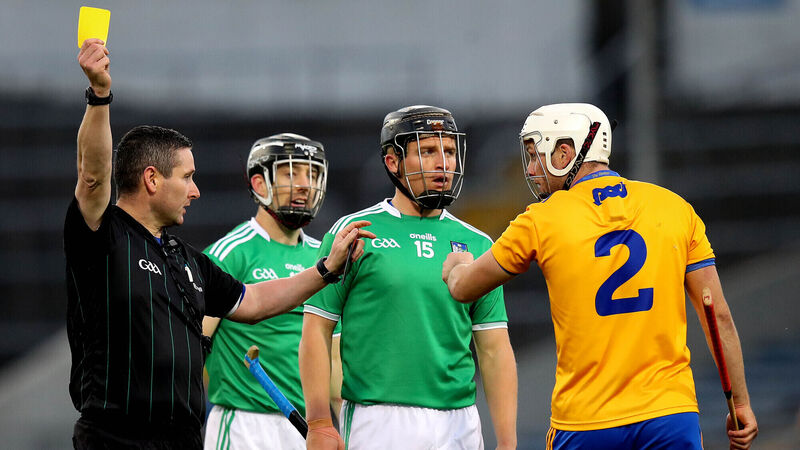Brian Gavin: The lack of crowds could actually be beneficial for GAA referees

Clare’s Jack Browne is booked by Referee Fergal Horgan during yesterday's Munster Championship clash. Picture: INPHO/Ryan Byrne
With the amount of white flags being raised, hurling umpires were getting as much exercise as much as their referees over this opening weekend of the hurling championship.
People have their theories for the high scoring. John Kiely said after the game that it’s the speed of the puck-out and perhaps he’s right. What I noticed in both the game in Croke Park and Thurles was umpires not handing the sliotars to the goalkeepers as has been the norm. Instead, the players were picking up the balls from the ground to the side of their goals.








